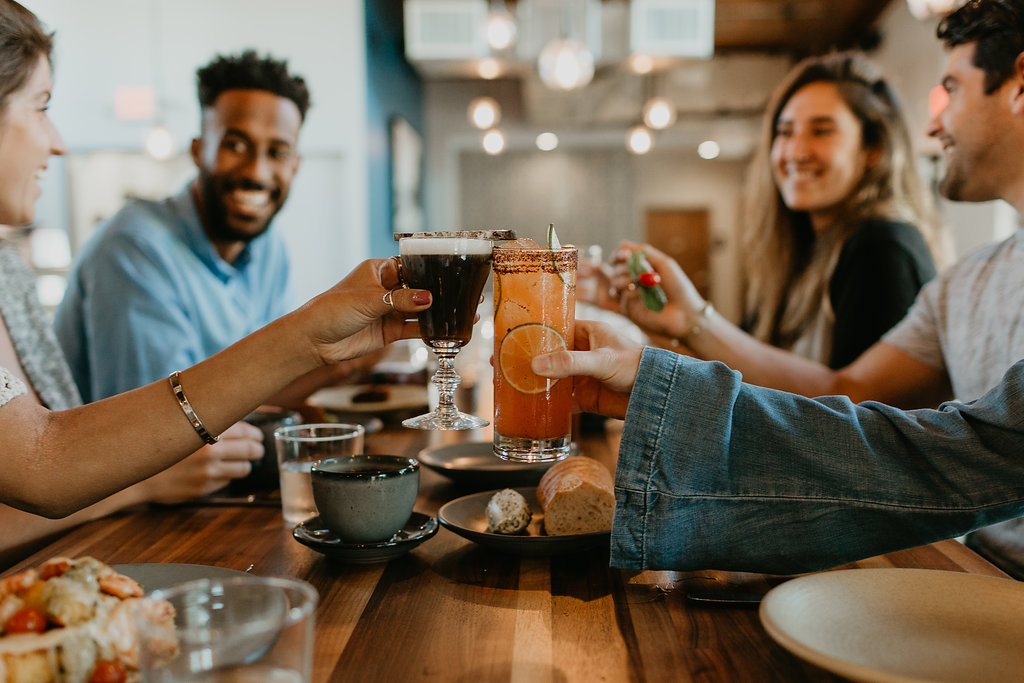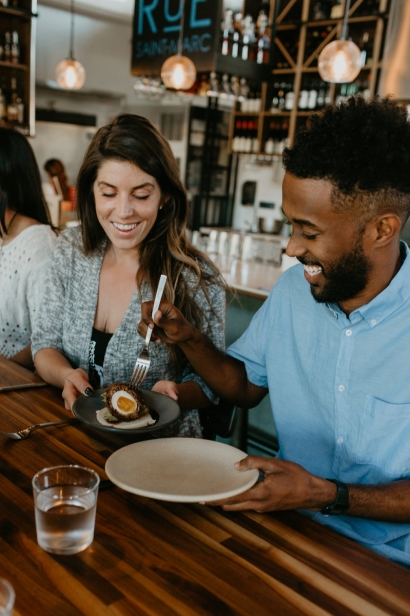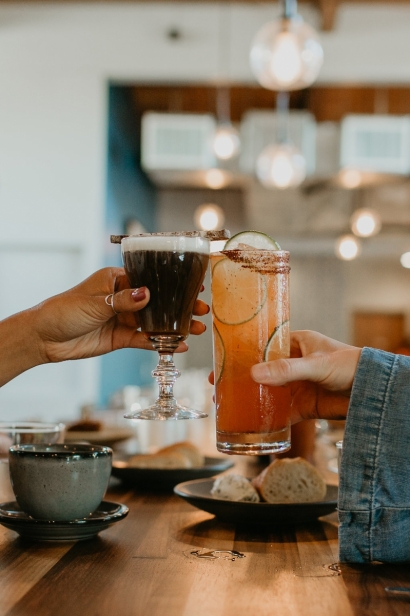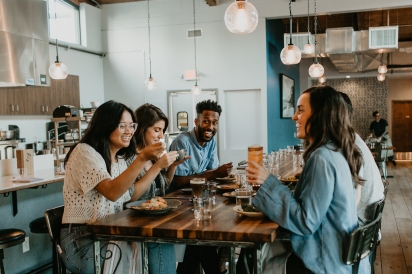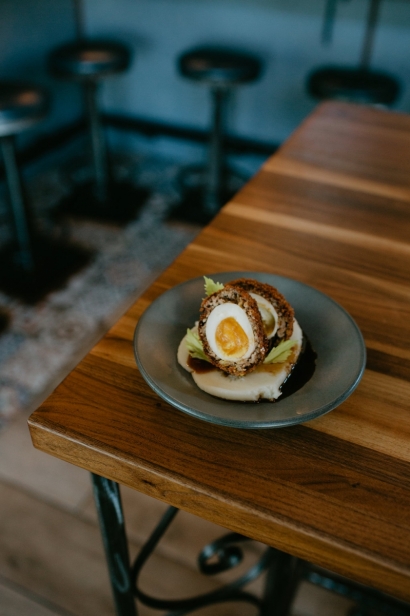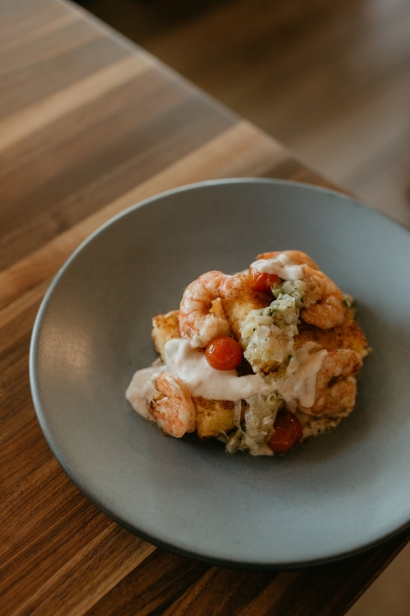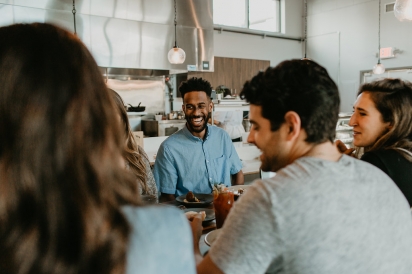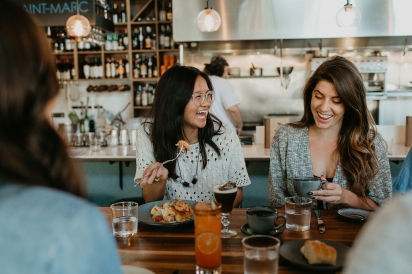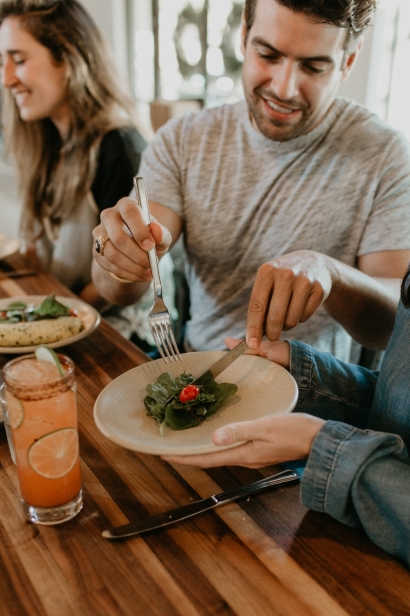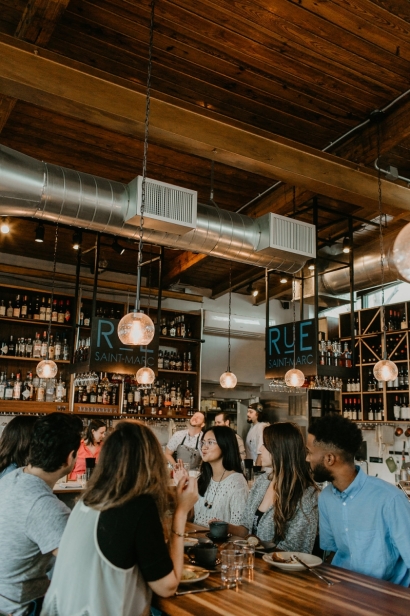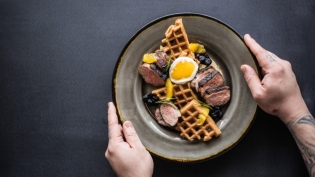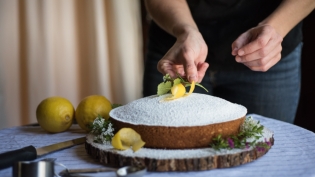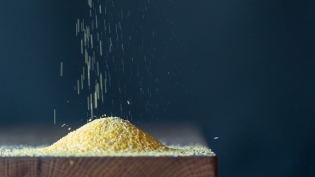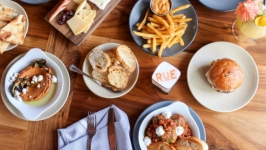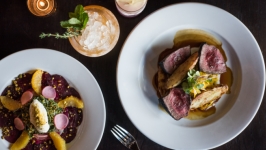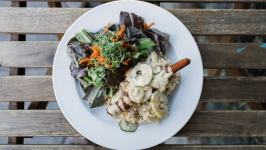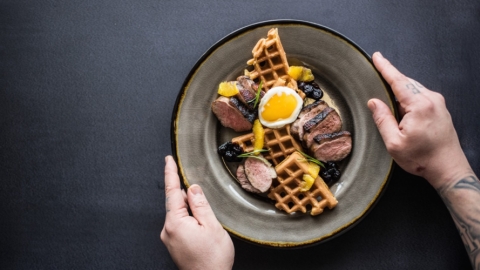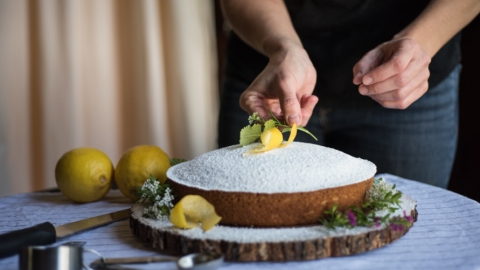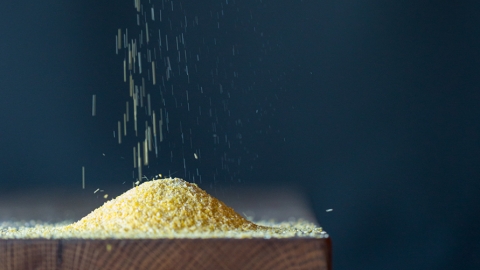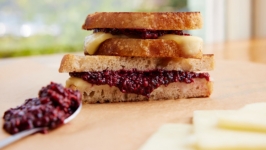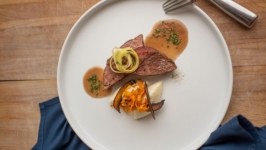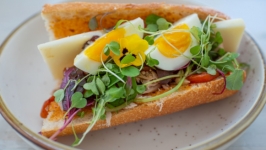Why We Love Brunch
The word “brunch” demands to be uttered. Not only is it phonetically pleasing, there also appears to be some kind of supernatural phenomenon in play — as if, like Bloody Mary herself,brunch materializes just by speaking its name.
The Washington Post once called it “the most delicious — and divisive — meal in America.” It’s worth pausing here to note, despite where we might land on the topic, that the prospect of brunch is given to hyperbole.
For instance, late last Sunday morning an idle foursome sat down to brunch and had nothing better to talk about than being at brunch and how pleasant or unpleasant the brunches of recent history have been. Once the waiter had arrived, a woman from the table exclaimed, “Talk to me about your Benedict,” as she poured a glass of spiked pamplemousse punch from a large crystal carafe.
On the other hand, a famous rockstar recently told a reporter, when asked why he moved out of New York City, “I don’t know how many, like, white people having brunch I can deal with on a Saturday afternoon.” Of course, the rockstar in question is, like, white and hails from a family of elite New York City socialites.
Although they seem to oppose each other, both dialogues are couched in the same haughty pretense, which speaks to the true nature of brunch. It is a pretentious meal, and it’s easy to end up as a punchline no matter if we’re extolling or slamming it. Then again, how could it not be, with champagne and poached eggs being de rigueur?
As far as we know, brunch has always been about conspicuous consumption. In comparison to the Cantonese dim sum brunch tradition, America’s relationship to the meal is insipidly modern. The word first appeared in English in a British periodical from 1895 under the title “Brunch: A Plea.” Its author lobbied for rising late on Sunday mornings, and a lighter, boozier alternative to the dense post-church meals. The idea was marketable, but prohibition and the culture of temperance in America halted any immediate popularity in the early 20th century.
Only the wealthiest Americans could procure the liquor to craft brunch cocktails during the 1920s and ‘30s, but a paradigm shift was in the offing. Following World War II, brunch became fully democratized, a result of the move from religious to secular activities on Sundays, which also coincided with women entering the workforce and assuming more independent social lives. “The new wave of mixed drinks, often centered around citrus, eventually helped shed stigmas about drinking during daylight, especially for women and members of the middle class,” The Washington Post reported.
Brunch is now synonymous with the feeling of validated indulgence. Rich sauces, Southern-inspired ingredients and portions, fitting an egg when/wherever physically possible, and, of course, the booze, all seem to be guided by an implacable spirit of decadence. No other secular meal has the tendency to swallow entire afternoons, or days, quite like brunch. Experienced practitioners will fondly recall marathon sessions that commenced with antemeridian mimosas and broke up in a dive bar at midnight.
It would be fairly pedestrian to say that brunch is still a class issue, but we’ll do it anyway. Today, the ritual is most popular in regions with higher rates of disposable time and income, ergo the Pacific and Atlantic coastlines. The Midwest, save for Chicago, is a veritable “brunch desert,” according to The Washington Post, a kind of desert that the Midwest probably hadn't known existed until the publication of that report. The meal has steadily increased in popularity over the last two decades. Even as the world economy collapsed in 2008-2009, the urgency of brunch could not be stayed.
Despite its drawbacks, the alleged divisiveness and its many caricatures, brunch does offer something healthy for the individual and the community, and it’s not necessarily edible.
It’s true that as D.C.-based food writer Maura Judkis noted, we have become more inclined to forgo breakfast and traditional breakfast foods during the workweek in favor of brunching on the weekends, which inspires a ravenous yen for breakfast staples come Saturday, and more creative ways to prepare and consume them. However,the meal also satisfies the growing need for communal engagements in our increasingly frenetic and fragmented lives. For these reasons, it seems that the brunch ritual is more en vogue than ever.
What's more, Judkis suggested that weekend mornings are the only time friends and family can, or are willing to, get together anymore. Dinner parties once served the same purpose, but they seem to have been eclipsed by brunch, which, in addition to gorging on sumptuous meals, offers a venue where friends and family can host an enlightening conversation.
Perhaps no better example has come by way of Jacksonville’s own Catalina Alers-Alers and Jessica Cooper who host the semi-regular podcast entitled “But First, Brunch.” The podcast has, incidentally, very little to do with the dining aspect of brunch (though occasionally the hosts bring mimosas into the studio). Instead, Catalina and Jessica play cleverly on the theme of brunch as a mechanism for fostering communal dialogue. The premise of the show concerns two millennial women convening at the brunch hour on Saturday to dissect several consequential topics affecting them locally and globally, while likewise encouraging listeners to use their weekly brunch hour for the same purpose. They’ll often begin an episode by holding court on the latest issues facing North Florida, which are then parlayed into a conversation concerning the macro — a formula that, in effect, mimics the progression of brunch conversations. As the buzz intensifies, diners grow increasingly lively and loquacious, poised to address those worldly plights.
The podcast reminds us that, should we decide to brunch, there’s something larger at stake every weekend morning between 10 and 2 — an opportunity to uphold the tradition of communal dining and civil discourse that is threatened by a culture of cynicism and impatience. Difficult to imagine a more edifying ritual — the symbiosis of a hearty meal among friends and a meaningful topic to dissect. It would be a shame to let it fall out of favor.
There’s certainly more to talk about than our Benedict alone, and choosing to indulge in conversation might serve us better than a second or third round of beignets. But if one necessitates the other, there is no sense in depriving ourselves.
Special thanks to our friends at Rue Saint Marc in Jacksonville for hosting us for an afternoon of brunching.


